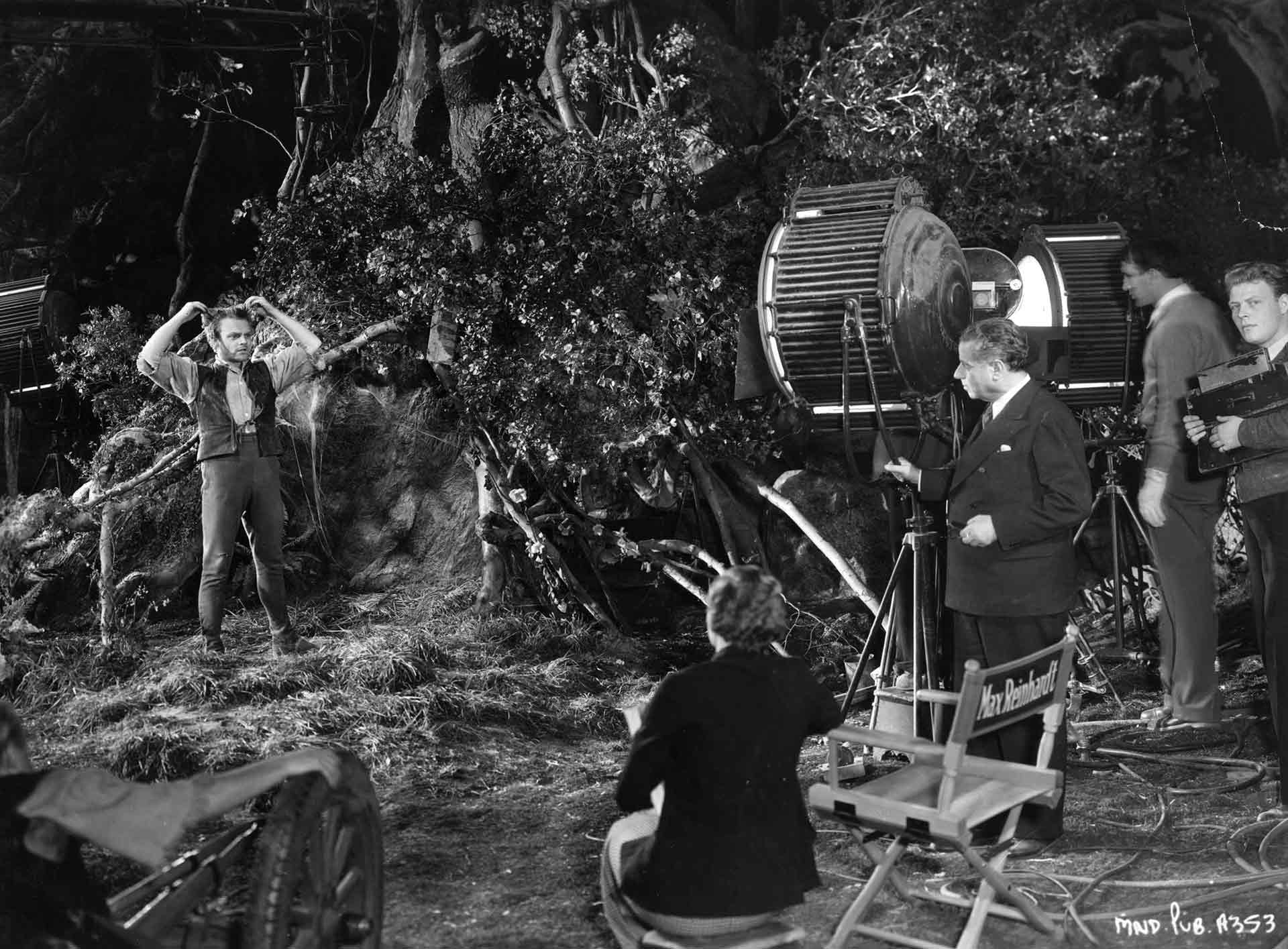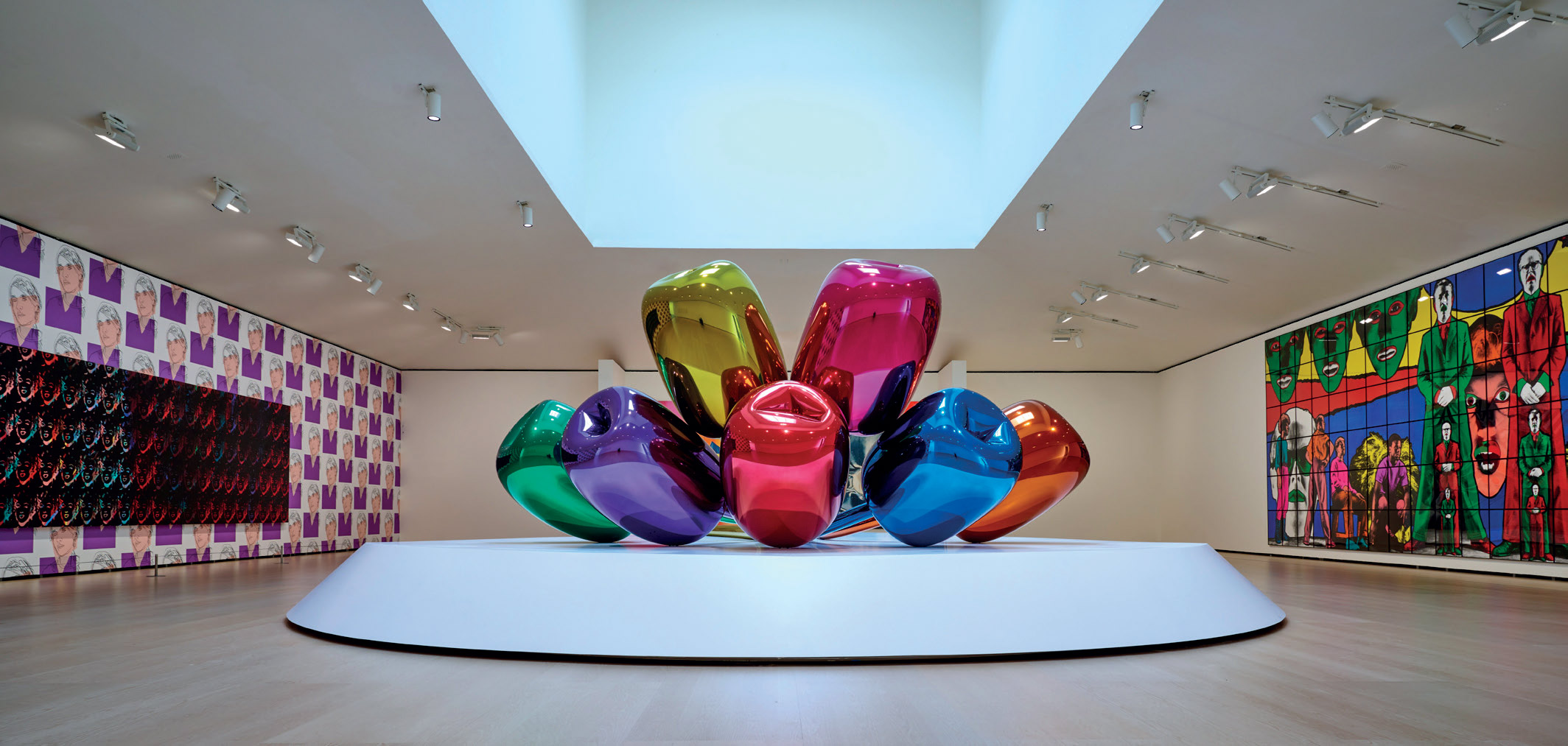
As part of the Didaktika project, the Museum designs educational areas and organizes activities to complement its exhibitions. Tools and resources are provided both in the galleries and online to increase viewers’ understanding and comprehension of the artists and works on display.

Austrian film and theater director Max Reinhardt (b. 1873; d. 1943) revolutionized the foundations of traditional dramaturgy, seeking the audience’s emotional impact by enhancing elements like the set design, music, and expressiveness of the interpretors’ faces.
His pieces varied widely, from small, intimate performances with just a handful of actors and tiny audiences to huge productions with legions of extras and impressive soundtracks. He put all this expressiveness, which contrasted with the naturalism of more traditional theater, into practice in his company (a touchstone in theater training) and later in his films. In 1920, along with figures like Richard Strauss and Hugo von Hofmannsthal, he founded the Salzburg Festival, a must-see for lovers of the performing arts even today. Between 1920 and 1932, he directed the Grosse Spielhaus and the Deutsches Theater in Berlin. He was also co-publisher of the magazine Schall und Rauch. But he had to flee Europe in 1933, persecuted by Nazism because of his Jewish roots, and he moved to New York.
Bertolt Brecht (b. 1898; d. 1956) was another essential playwright and writer in modernism; he advocated anti-bourgeois, epic or dialectic, theater, which led the spectator to think because he was convinced that those reflections could contribute to changing the world. In 1924, he worked as a playwright for Reinhardt in the Deutsches Theater, which he would go on to direct years later. Brecht is considered the founder of the didactic theater and an early critic of Capitalism. Are you familiar with Der Bilbao Song, which Brecht wrote in 1929, with music by Kurt Weill?
SPANISH THEATER OF THE PERIOD
In 1929, Spanish poet and playwright Federico García Lorca (b. 1898; d. 1936) discovered New York, an experience he transferred to his writings and performances in the university theater company La Barraca, which he went on to direct along with Eduardo Ugarte years later. Margarita Xirgu (b. 1888; d. 1969), a great theater director and actress on the Spanish scene at that time, staged several of Lorca’s productions. The Granada-born poet was a benchmark in Spanish literature and theater in the early decades of the 20th century because of his talent and critical opinions; he was preceded in this by Ramón María del Valle-Inclán (b. 1866; d. 1936), Miguel de Unamuno (b. 1864; d. 1936), and later Ramón Gómez de la Serna (b. 1888; d. 1963), among others. A symbol of freedom and an avowed anti-fascist, Lorca was executed in Granada in 1936 at the start of the Spanish Civil War. The same fate awaited many other intellectuals.
Interior of the Café Capua designed by Adolf Loos. Vienna. Photo: L Magno, 1913. Getty Images Archive.
